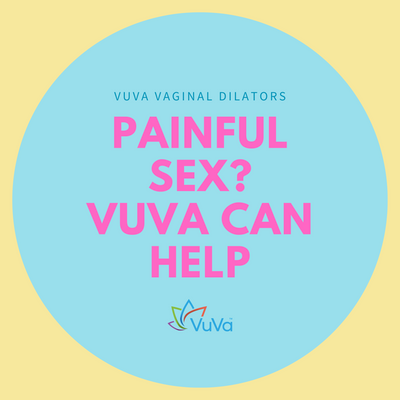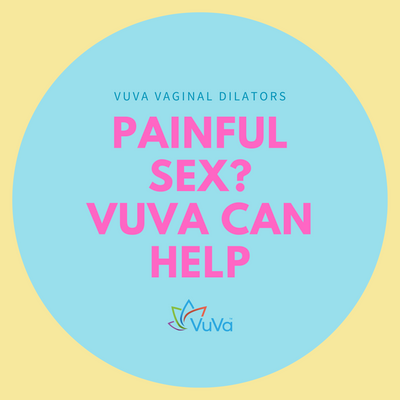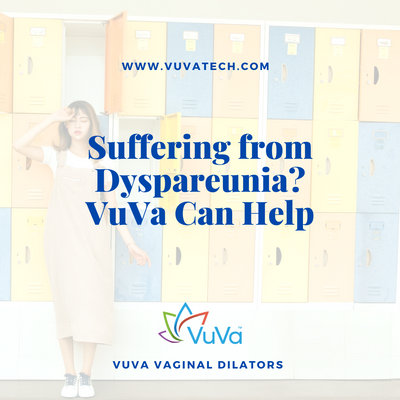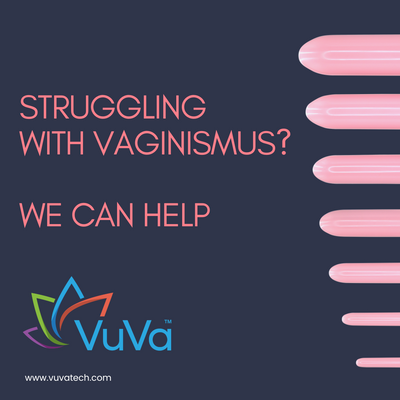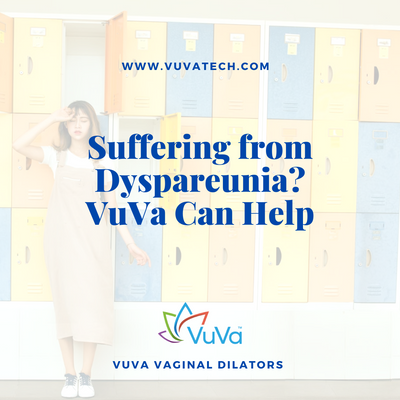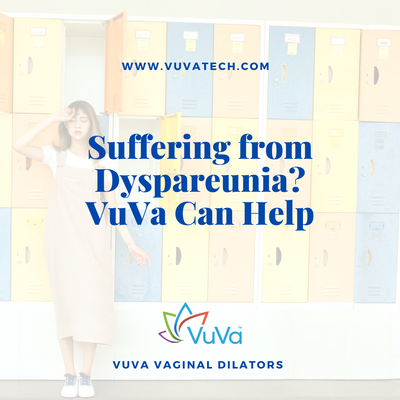
| Caroline Knight
The Burning Question: Will I have Vulvodynia Forever?
The poignant question, “Will I have vulvodynia forever?” is one that Tara Langdale (founder of Vuvatech) found herself asking many, many times during her twenties. Tara was no stranger to the burning and stinging pain of vulvodynia, and found that this tricky and persistent condition was impacting her on so many levels.
Tara would often find herself thinking it risky to even sit down for an extended period, and the impact on her intimate relationship with her husband was a real problem for her. If you’re reading this, there’s every chance you feel her pain on various levels. In fact, Tara has met countless women who felt that they were at the end of their tether. Some had ended up divorced because they couldn’t overcome their problem, and others had sunk into depression because they got no straight answers or solutions from their Doctors.
The unbearable pain of vulvodynia drove Tara to find her own solution in the end… and fortunately it was a very successful one that helped not only her, but countless other women. So if you’ve found yourself asking that burning question too, read on.
Will I have vulvodynia forever?
Let’s start by saying that even if you do, it need not be as debilitating as it is right now. When there seems to be no end in sight it can be both exasperating and depressing. Tara was there once, but she isn’t now, so hopefully that will inspire a little hope.
Perhaps you’re a woman that can’t function normally or consistently because of vulvodynia. Maybe you feel isolated, desolate and frustrated. It’s probably safe to say that most women with vulvodynia feel this way at some point. As vulvodynia can be as difficult to diagnose as it is to treat, they often end up second-guessing themselves and wondering whether it’s all in their heads…
No – it isn’t – but there’s no need to worry that you’ll spend a lifetime in agony. Although is a genuine condition, it is unlikely to last forever, and for the unfortunate few who get stuck with it, there are ways to diminish and manage the pain.
It’s hard to say if you will have vulvodynia forever
These may not feel like the magic words you want to hear, but it’s impossible to say for sure how long vulvodynia will last. The first stop is to find the right specialists to diagnose it, as it often takes more than one. Vulvodynia is a complex issue, more recently theorized as a neuropathic problem by experts – it has even been called a diabetic neuropathic syndrome. In other words, the problem is thought to start in the brain rather than the vulva, and the vulvar nerves over-respond to stimuli.
Many other things may have to be ruled out first, due to the complexity of the pelvic area and nervous system. Once those things are ruled out, it will be easier to pinpoint vulvodynia as the cause, but perhaps not the cause of vulvodynia. When you can’t be 100% sure of the cause of something, it’s pretty much impossible to predict its duration.
One thing we can confirm is that vulvodynia doesn’t get worse over time – it is generally just exacerbated by certain activities. So if you are in the know about what causes a vulvodynia flare-up, you can modify your lifestyle and activities to make things easier. Truthfully it would be remiss of us to say that you definitely won’t have to manage your symptoms for the rest of your life, but we are here to provide the kind of information that will make freedom more likely.
Don’t want vulvodynia forever? Consider this…
Tara found relief through a form of magnetic therapy, and she did so by creating her own solution: vaginals dilator filled with Neodymium magnets. How did this come about? Well, after a car accident, she had nerve pain that was eventually helped by magnetic therapy, and this gave her the idea for managing her vulvodynia pain. She knew that when electromagnetic energy is brought back into balance, the body can heal itself. Testing this out with her self-created vaginal dilators, Tara found that there’s a lot of truth to the theory.
She also found that magnetic vaginal dilators could reduce pain during intercourse by around 60%, and up to 90% when they were used directly before it. This was a real breakthrough discovery, and she hasn’t looked back. Many years later, feedback from other women fortifies the conclusion: they tell her that their sex lives and marriages have been restored, and that the pain of vulvodynia is either diminished or gone.
It may be that you need to take a multipronged approach to your vulvodynia treatment, as everybody is different – and the same could possibly be said of the cause of vulvodynia in the first place. Vaginal dilators are certainly worth a try, and you may also find relief from pelvic floor physical therapy techniques like trigger point release, connective tissue manipulation and myofascial decompression therapy.
The list doesn’t end there though, and the Vuvatech site is full of information on treating vulvodynia in various ways. So, will you have vulvodynia forever? Time will tell, but now you have the best chance of being free from it. Let us know if there is anything more we can help with!
Other VuVa Helpful Links:
7 Reasons for a Tight Vagina and How to Loosen
How to Relax Vaginal Muscles, Vaginismus & Sex
Vaginal Stretching - Keeping in Shape with Dilators
Do Dilators Really Work? Yes, and They can Improve Your Sex Life!
Shop for VuVa Vaginal Dilators



